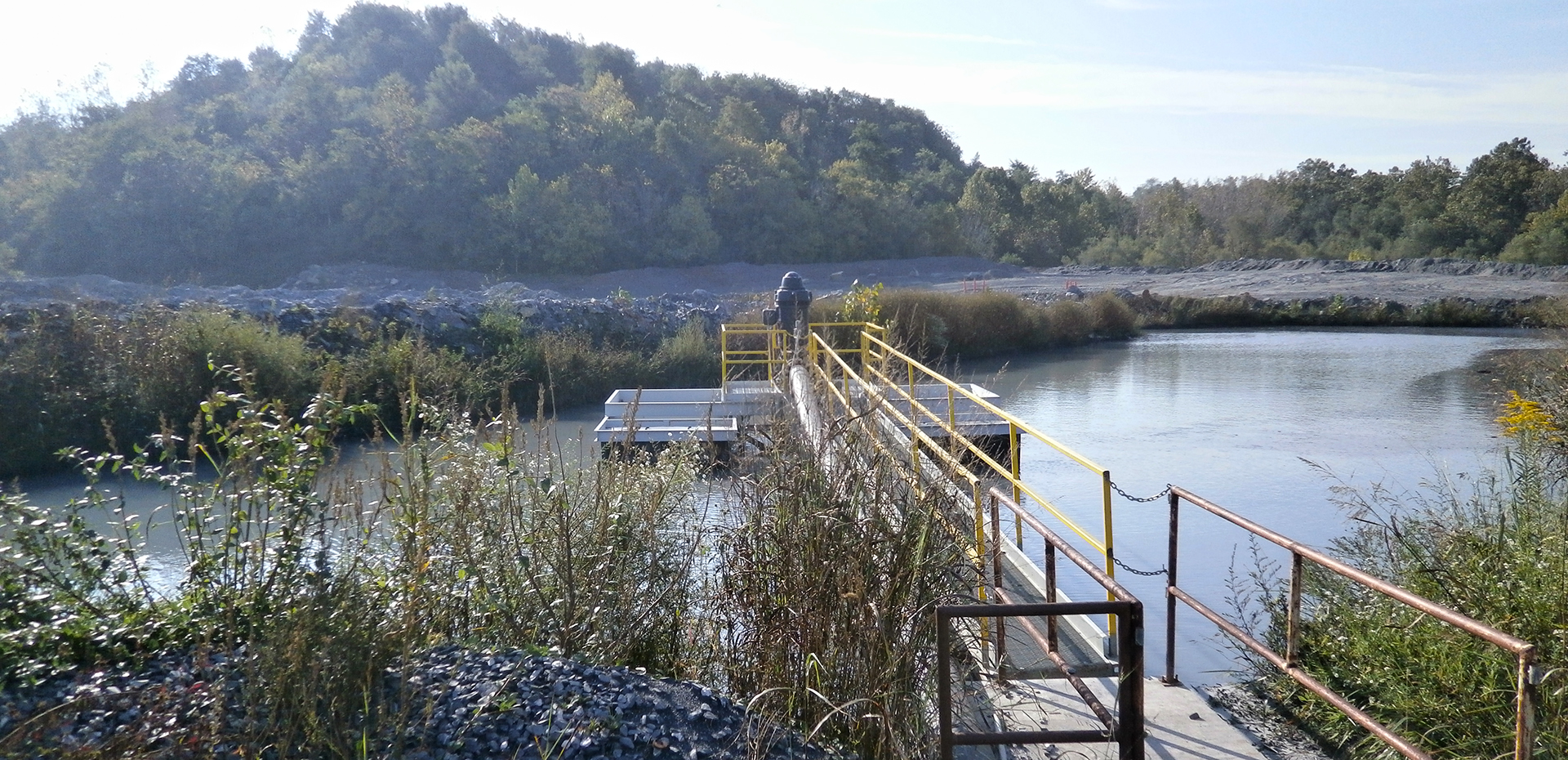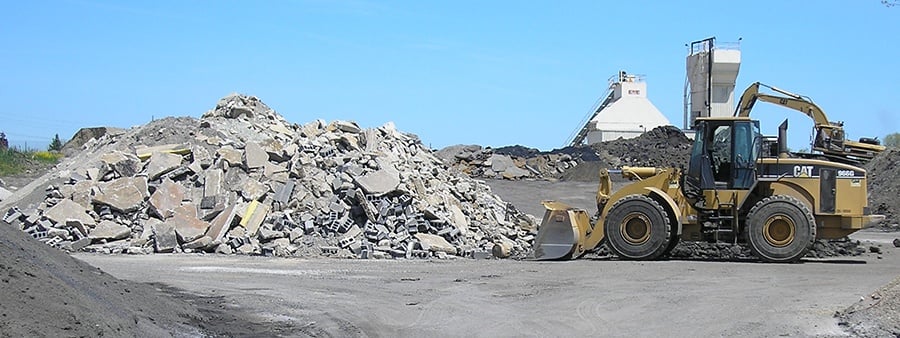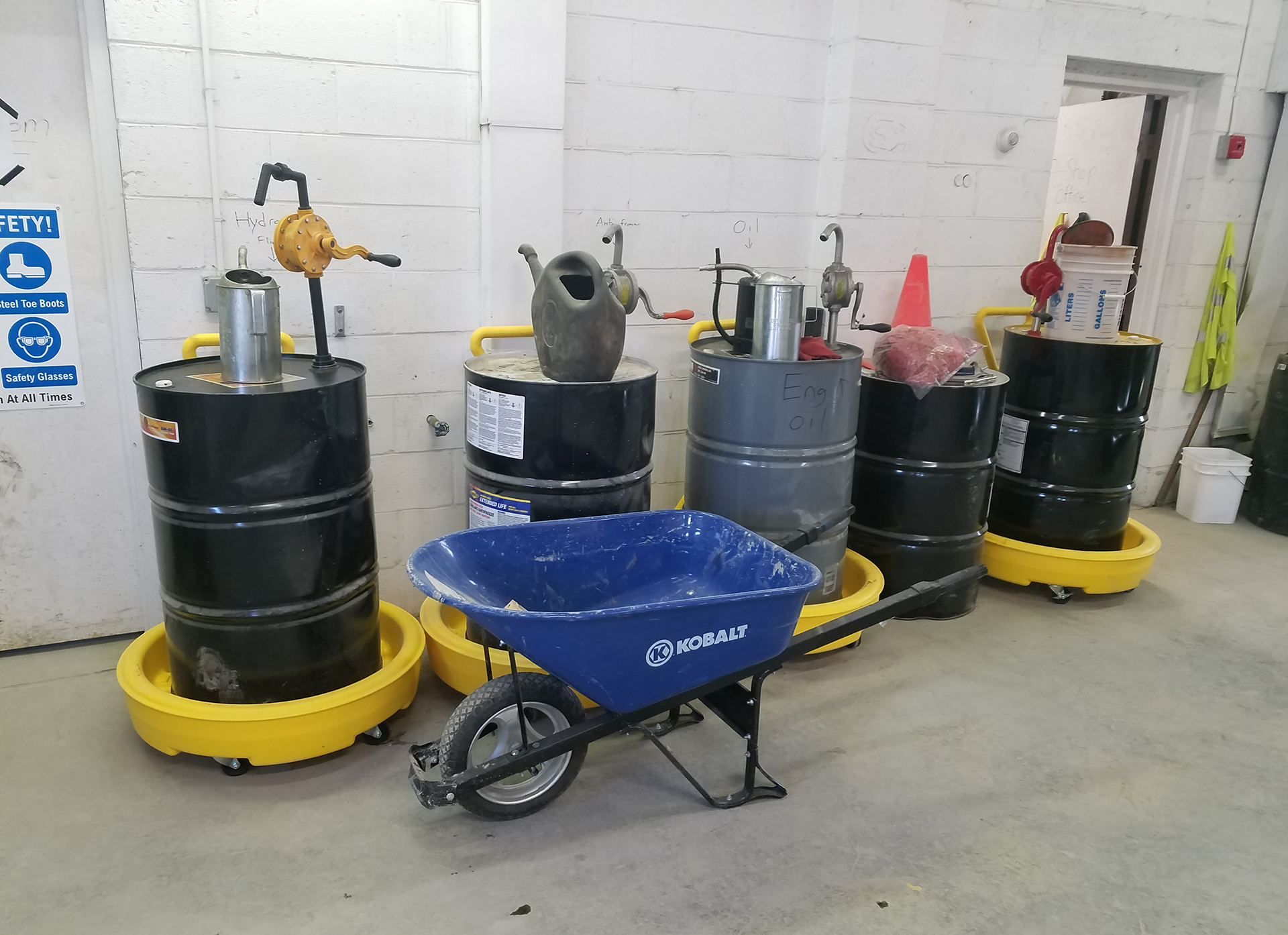Learn the difference between Water Allocation Permits and Water Use Registrations in New Jersey.
In New Jersey, the diversion of water from either groundwater or surface water, such as by a well, pump, or other means, may require either a Water Use Registration or a Water Allocation Permit from the New Jersey Department of Environmental Protection (NJDEP).
Yes, they sound the same, and sort of are the same, so what’s the difference? When is a Water Allocation Permit needed in New Jersey, and when is a Water Use Registration needed? Believe me, it can get confusing! And, it’s important to know the difference as it could mean the difference between legally following State of New Jersey regulations and being out of compliance, which could mean a bunch of trouble. It could also mean the difference between thousands of dollars in annual fees, so getting it right is also vital to keeping your business’s costs under control.
So, let’s jump in and discuss the differences between a Water Allocation Permit in New Jersey, and a Water Use Registration.
What are Water Use Registrations and Water Allocation Permits?
Let’s make sure we understand what either a Water Use Registration or Water Allocation Permit is, and what they aren’t.
Both are similar things that essentially grant someone (a company, facility, person, whatever) the ability to divert groundwater or surface water for some use, whether that’s for industrial processing, public or private water supplies, irrigation, and a whole lot of other uses.
If you want to divert water from either groundwater (such as by a well with well pump) or surface water (usually by a pump, but also by a dredge or other type of equipment), then depending on how much water you want to divert, you may need either a Water Use Registration or a Water Allocation Permit from the New Jersey DEP.
There is another type of approval granted by the NJDEP for agricultural water diversions, but that’s another discussion for another time.
What’s a Diversion when it comes to Water Use Registrations or Water Allocation Permits?
Simple. It’s a fancy way of saying you are taking or using water. A diversion from groundwater is simply you are pulling that water from the ground, via a pump in a well, and plan on using it for some activity. Same with surface water.

The Difference Between Water Allocation Permits and Water Use Registrations in New Jersey According to the NJDEP
Alright, let’s start comparing the two and see what’s what. We’ve already established these are needed if you’re diverting water. Here’s the key difference:
A Water Use Registration is required for any person with the capability to divert in excess of 100,000 gallons of water per day, but who diverts less than this quantity.
A Water Allocation Permit is required for the diversion of ground and/or surface water in excess of 100,000 gallons per day for a period of more than 30 days in a 365 consecutive day period, for purposes other than agriculture, aquaculture or horticulture. This includes water diversions for public water supply, industrial processing and cooling, irrigation, sand and gravel operations, remediation, power generation, and other uses.
That’s about as clear as mud pumped out of a dry well, right? You can thank the NJDEP since that came directly from them.
Water Use Registrations vs Water Allocation Permits Explained by Us!
Let’s break that down into something understandable.
First off, bear in mind that for the purposes of figuring out if you need a Water Use Registration or Water Allocation Permit, the NJDEP will look at all diversion sources. If you have 2 well pumps that are capable of pumping 25 gallons per minute each (gpm) then your capacity is 50 gpm. Make sense?
Also, you have to remember these are specific to New Jersey, although there are similar types of permits and approvals in other states. This is important to know, since many companies come to New Jersey from out of state and don’t realize they need one of these approvals until they’ve received a Notice of Violation from the NJDEP, which can be troublesome to deal with.
Here’s the differences between a Water Use Registration and Water Allocation Permit in New Jersey:
- Small Diversions (No WUR or WAP Needed) - If your combined diversion is less than 70 gallons per minute (gpm) then you don’t need either a Water Use Registration or Water Allocation Permit in New Jersey. Lucky you!
- Medium Diversions (Water Use Registration Needed) - If you have the capacity to divert more than 70 gpm, but you divert less than 100,000 gpd, then you need a water Use Registration. In order to qualify for this, you’ll have to keep monthly records to prove you’re under 100,000 gpd, so don’t think you can run a big operation and trick the NJDEP by saying you don’t use your pumps that often, because they will check.
- Large Diversions (Water Allocation Permit) - If you have the capacity to divert more than 70 gpm, and you divert over 100,000 gpd, then you need a Water Allocation Permit. How does the NJDEP know? Again, you’ll have to provide usage records.
When in doubt, it really pays to double-check, since most people automatically presume, they need the smaller permit rather than the larger one.
Why does the NJDEP care about 100,000 gallons per day?
That’s a great question! And one that I can’t really answer with a high degree of certainty.
I can tell you this. If you have a pump with 70 gpm capacity (or several adding up to 70 gpm or more), and you run it every minute of the day, you’re going to exceed that 100,000 gpd mark. Do the math - 70 x 60 x 24 = 108,000 gpd!
Why did the NJDEP settle on this number though? I can’t tell you. I’m sure there is some study and data behind the reason they chose this number way back when they came up with these regulations.
Will the NJDEP really figure out if I’m diverting all this water?
Short answer is yes, and they take this stuff seriously. Under either a Water Use Registration or a Water Allocation Permit, you’re going to have to put meters on your diversion sources (like your well pumps), keep monthly records of your diversions, and report to NJDEP on a regular basis how much you’re diverting. So, they’re going to know, and if you need a Water Allocation Permit instead of a Water Use Registration, they’re going to let you know! You can count on that!
PLUS! When you initially install a well, you’re going to need a well permit, so you’ll already be on their radar for diverting water. You can risk not playing by the rules, but it’s entirely possible that the NJDEP will shut your water diversions down, meaning you can’t use the water you want to (or need to), potentially impacting your business and bottom line. Considering that Water Allocation Permits can take awhile to obtain, do you really want to risk not being able to operate parts of your business for months because you can’t use water? The answer is probably no.

Water Allocation Permit vs Water Use Registration Time-Frames
As with everything in New Jersey when it comes to environmental regulations, getting thing done takes time. Here’s what you can expect with the two.
How long do they take to get?
The application process for a Water Use Registration isn’t extremely difficult and shouldn’t take that long to get, figure several months. You only have to deal with the NJDEP for this application. The problem is the NJDEP isn’t the fastest when it comes to issuing stuff like this.
Conversely, the application process for a Water Allocation Permit can be pretty tough. The application itself is very complex, you’ll need a fairly sophisticated analysis of potential impacts on water supply sources (rivers, ponds, lakes, aquifers, etc.) as well as other wells and potential areas of contamination (yikes!). On top of that, you may need approval from other agencies. For example, if you’re located within the Pinelands, you’ll need to deal with the Pinelands Commission. All in all, this is a pretty complex process to get through. Figure it’ll take anywhere from several months to a year or more to get this.
The problem again lies within the NJDEP. They aren’t the most expedient agency, so you’re going to be waiting, no matter what you’re dealing with. There really is no rush option, no matter how quickly you need to get things up and running, so plan ahead as much as you can.
Water Use Registration vs Water Allocation Permit Costs
As with everything here in New Jersey, nothing is cheap or free. Let’s take a look at the costs quick.
What does the NJDEP charge?
The NJDEP will charge per application, and for Water Use Registrations that is going to cost you $415. Not bad!
For Water Allocation Permits, the application fee could run between $3,570 and $21,790, all depending on the source and amount of water you’re diverting. Additionally, with Water Allocation Permits, you also pay based on water usage, and these costs can be very high depending again on water usage.
What will it cost to hire someone to get one of these for me?
Let’s say you need one of these and you want to know how much we’ll charge. Great question! Here’s the answer – it depends!
For us to get you a Water Use Registration you’ll be looking at a much lower number, figure something in the $1,500 to $6,000 range, while for a Water Allocation Permit you might be looking in the $7,500 to $25,000+ range for the entire project.
It all depends on your situation and what’s needed. As you can see, there’s a huge spread, and the variables that go into these projects can, and do, make a huge difference.

What sort of requirements are there?
From a regulatory perspective, having a Water Use Registration or Water Allocation Permit means you’ll have things to do in order to stay in compliance and out of trouble with the NJDEP. Here’s a simple breakdown of what’s in store if you get covered:
- Monthly Diversion Record Keeping – Keeping a log of how much water you’re diverting.
- Quarterly / Annual Diversion Reporting Online – You’ll then report that information to the NJDEP, either on a quarterly or annual basis.
- Metered Connections - If you don’t have meters to figure out how much water you’re diverting, you’ll need to install and regularly calibrate them. And yes, the NJDEP will want documentation they’re calibrated.
Get Help with Water Allocation Permits & Water Use Registrations in New Jersey
As you can see, whether you need a Water Allocation Permit or Water Use Registration in New Jersey, there’s a fair amount of difficulty in obtaining and operating under one.
If you need help getting one or the other, you’ve come to the right place. We’ve been helping clients of all kinds deal with water permitting here in New Jersey since we opened our doors back in 1992. We are experts in navigating the difficult process of obtaining either a registration or permit, depending on your needs, and can work as efficiently as possible to get you to your end goal of coverage under one of these NJDEP programs.
If you want to learn more, ask us some questions, or start figuring out what you’ll, let’s talk. You can feel free to reach out to us online, shoot us an email at info@rmagreen.com, call us toll free at 888-RMA-0230, or give our New Jersey office a call at 609-693-8301.





